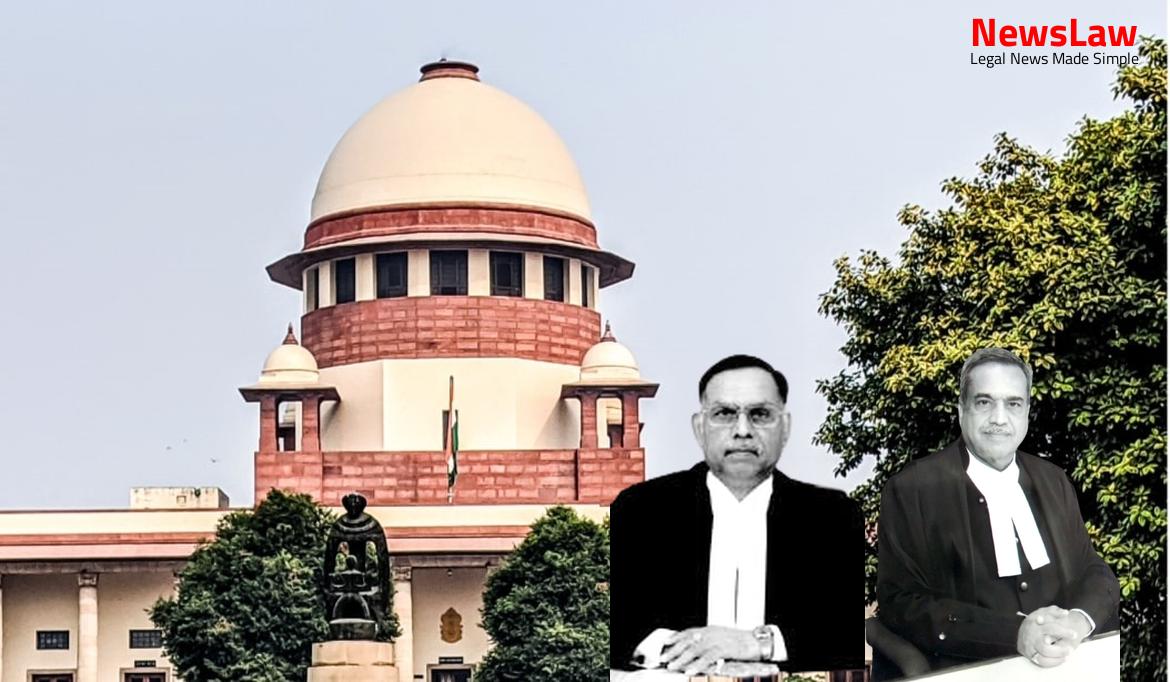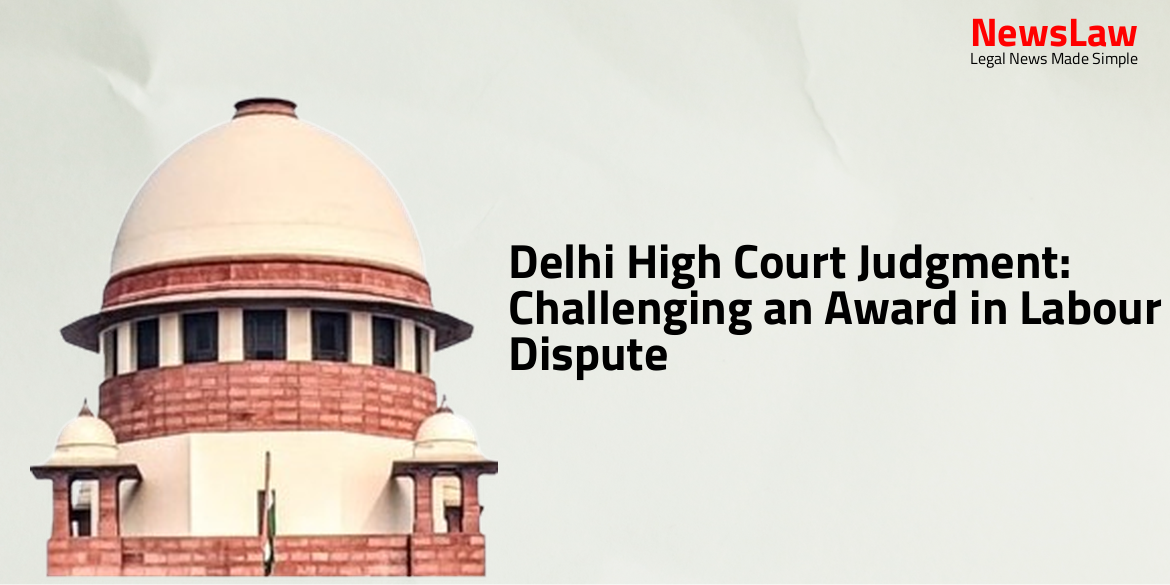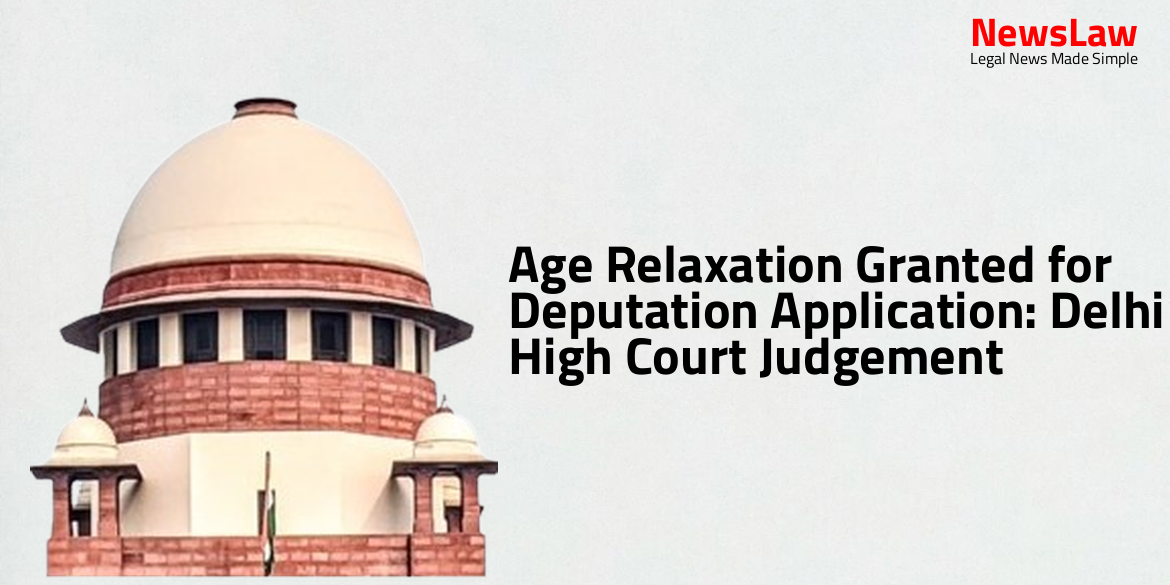Delve into the legal intricacies of the closure and reopening of Anganwadi Centres, a vital aspect of providing nutritional support to children and women. The Court’s thorough analysis sheds light on the significance of adhering to statutory obligations and guidelines for the effective functioning of these centers. Stay tuned to understand the legal foundation behind the decisions regarding Anganwadi Centres in the context of the ongoing pandemic.
Arguments
- The petitioner has filed a Public Interest Litigation under Article 32 of the Constitution of India questioning the closure of Anganwadi Centres across the country.
- The Anganwadi Centres provided supplementary nutrition to pregnant women, lactating mothers, adolescent girls, and children up to the age of 6 years, fulfilling the State objective of holistic development of children and providing food and nutrition to beneficiaries.
- The petitioner has impleaded the Union of India, all States, and Union Territories in seeking reliefs.
- Requested reliefs include reopening all Anganwadi Centres, providing hot cooked meals, take-home rations in accordance with National Food Security Act, 2013, and conducting growth monitoring of children to address the aftereffects of the pandemic.
- Anganwadi Centres have been opened in some States and Union Territories as per the affidavits submitted.
- The Union of India has sought status reports from States and Union Territories based on the Guidance Note dated 11.11.2020.
- Some UTs and States like Andaman and Nicobar, Chhattisgarh, Goa, Meghalaya, and Rajasthan have opened Anganwadi Centres.
- States and UTs are providing necessary Home Take Ration to beneficiaries as per requirements, delivered at doorsteps once in 15 days.
Also Read: Legal Analysis on Compensation and Protection for a Rape Victim
Analysis
- The issue discussed in this part of the judgement is the closure and reopening of Anganwadi Centres in response to the COVID-19 pandemic.
- Various orders and guidelines issued by the Ministry of Home Affairs and the Government of India regarding the operation of Anganwadi Centres are mentioned.
- The importance of nutritional standards and benefits provided by Anganwadi Centres to beneficiaries, such as supplementary nutrition, growth monitoring, and pre-school education, is highlighted.
- Different States have varying decisions on reopening Anganwadi Centres, with some opting to keep them closed until a specified date and others resuming operations.
- The necessity of compliance with nutritional standards, statutory obligations, and guidelines in the functioning of Anganwadi Centres is emphasized.
- The role of Anganwadi Centres in promoting the health and development of children, pregnant women, and nursing mothers is reiterated.
- Recommendations are made for the reopening of Anganwadi Centres by all States/Union Territories outside containment zones, ensuring compliance with health and safety protocols and nutritional standards.
- Actions taken by various States/Union Territories regarding the operation of Anganwadi Centres and the distribution of Take Home Rations are discussed.
- The responsibility of the State in providing adequate nutrition to citizens, especially children and women, is underlined.
- The necessity of supervision, monitoring, and compliance with guidelines for ensuring proper implementation of nutritional support schemes is stressed.
- Public Interest Litigation in Writ Petition No. 196 of 2001 – People’s Union for Civil Liberties vs Union of India and 4 others.
- Court issued various directions for protection of right to food of the poor and underprivileged, including children and women.
- Pro-active directions to Central Government and State Governments for effective implementation of Integrated Child Development Services Scheme.
Also Read: Analysis of Seniority Determination in Armed Forces Personnel Case
Decision
- All States/Union Territories must issue necessary orders for monitoring and supervision of Anganwadi Centres.
- Ensure benefits reach beneficiaries, including nutritional support for pregnant women, lactating mothers, and malnourished children.
- Implement a Complaint Redressal Mechanism in each district.
- Costs to be borne by the parties.
Also Read: Judicial Analysis of Section 319 Cr.P.C. Power
Case Title: DIPIKA JAGATRAM SAHANI Vs. UNION OF INDIA (2021 INSC 23)
Case Number: W.P.(C) No.-001039 / 2020



